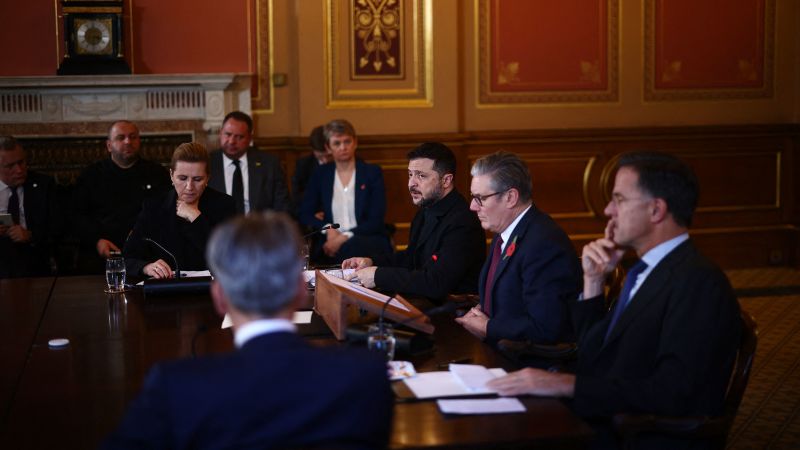
European leaders have pledged to intensify economic pressure on Russia as part of the “Coalition of the Willing,” meeting in London to strategize on ending the ongoing war in Ukraine. The coalition is urging more countries to adopt sanctions against Russian oil firms following the United States’ recent measures against Rosneft and Lukoil.
This initiative follows U.S. President Donald Trump’s announcement of new sanctions targeting Russia’s largest oil producers. In response, the European Union has also implemented additional sanctions and committed to financially supporting Ukraine for the next two years. The urgency of these actions is underscored by continuous Russian military incursions into European airspace and devastating strikes on Ukrainian infrastructure.
Global Coordination Against Russian Aggression
Despite diplomatic efforts by Trump and other global leaders, Russian President Vladimir Putin remains steadfast in his demands from Kyiv, refusing to agree to an immediate ceasefire. British Prime Minister Keir Starmer highlighted the interconnected nature of Ukrainian security with that of other nations, including the UK.
“Ukraine’s future is our future. What happens in the weeks and months ahead is pivotal for the security of the United Kingdom and all our allies across NATO and beyond,” Starmer stated. The UK has taken a leading role by being the first to sanction all major Russian oil companies, aligning with U.S. actions.
Starmer emphasized the collective impact of the sanctions imposed by the U.S., UK, and EU, noting that they not only harm the Russian economy but also demonstrate a united front in supporting Ukraine. He called for more countries to reduce their reliance on Russian oil and encourage others to cease purchasing these resources.
Ukraine’s Call for Military Support
Ukrainian President Volodymyr Zelensky expressed gratitude towards Trump and other allies for their support, describing the sanctions as a significant step. He stressed that effective diplomacy requires tangible actions, such as sanctions, military capabilities, and accountability for war crimes.
Zelensky has been vocal about his country’s need for U.S.-made Tomahawk missiles to target Russian energy facilities. After an unsuccessful request in Washington, he appealed to the European Council for long-range weaponry. His visit to London coincided with continued Russian strikes, which claimed lives in Kherson.
“Long-range capability directly strengthens democracy,” Zelensky asserted. “The more losses Putin suffers on his own territory, the fewer assaults he can carry out on the front line, and the faster he will agree to meaningful diplomacy.”
The Strategic Timing of Sanctions
NATO Secretary General Mark Rutte argued that the current situation presents an opportunity to increase pressure on Russia, as Putin faces challenges on the battlefield. Rutte commended Trump’s sanctions, which he believes will further strain Russia’s oil giants and demonstrate the U.S.’s commitment to ending the conflict.
“The truth is that Putin is running out of money, troops, and ideas,” Rutte said. “Now is the right time to increase the pressure on Russia so we can finally get a fair and just peace for Ukraine.”
Diplomatic Efforts and Future Prospects
In a recent development, Trump canceled a planned diplomatic summit with Putin in Budapest, citing a lack of commitment from the Russian side. The last meeting between the two leaders in Alaska yielded little progress, and Trump has since noted insufficient interest from Russia in advancing peace efforts.
Meanwhile, Russia’s top economic envoy, Kirill Dmitriev, has arrived in the United States for discussions on the U.S.-Russia relationship. His visit, planned in advance, suggests ongoing diplomatic channels despite the broader tensions.
During the coalition meeting, Dutch Prime Minister Dick Schoof emphasized the importance of economic pressure to compel Putin to engage in serious negotiations. Denmark’s Prime Minister, Mette Frederiksen, reiterated the coalition’s unity in countering Russia, stating, “I think Putin’s strategy has been to wait for us to stop at some point to give up. But of course, this will never happen.”
The coalition’s actions represent a concerted effort to apply economic and diplomatic pressure on Russia, aiming to bring about a resolution to the conflict in Ukraine. As global leaders continue to coordinate their strategies, the coming weeks and months will be crucial in determining the future of the region.






